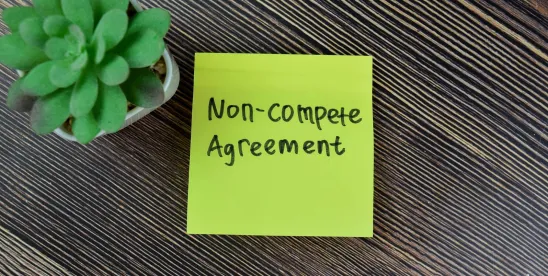When the calendar turns to July 2024, staffing agencies, home health agencies and other service providers operating in Minnesota are going to experience a considerable change in the legal landscape of that state, which could affect their motivation to continue doing business there.
On July 1, 2024, a new Minnesota law (MN SF 3852) goes into effect, prohibiting any service provider (defined as a business “acting directly or indirectly as an employer or manager for work contracted or requested by a customer”), from restricting, restraining or prohibiting in any way that customer from directly or indirectly soliciting or hiring an employee of the service provider.
In Practice, What Does This Mean?
Consider a staffing agency that employs accountants whom it places with its customers in Minnesota, to provide temporary or long-term accounting services. Pursuant to agreements that restrict the customers from hiring away those accountants (usually for some period of time and/or subject to a hiring fee, also known as a conversion fee), the customers pay the staffing agency – which has placed skilled workers who address the customers’ needs – and the staffing agency, in turn, pays wages to the accountants. After July 1 in Minnesota, however, those hiring restrictions will be unenforceable. As such, customers will be free to hire away from the staffing agency any and all accountants that were placed with them – cutting the staffing agency out of the equation. The staffing agency would argue that its business model depends on the restrictions in those agreements because if customers can decide simply to hire away the accountants at any time, then the staffing agency has no means to protect its primary assets (i.e., its skilled employees) and may not be compensated for the service it provided (placing skilled workers with customers who need them).
Why Has Minnesota Enacted This Law?
It is the latest development in a continuing legislative effort to promote employee mobility. Last year, on July 1, 2023, Minnesota became only the fourth state (along with California, Oklahoma and North Dakota) to ban noncompetes. That law rendered void and unenforceable any agreement between an employee and employer that restricts the employee, after termination of the employment, from performing: (1) work for another employer for a specified period of time; (2) work in a specified geographical area; or (3) work for another employer in a capacity that is similar to the employee’s work for the employer that is party to the agreement. The 2023 noncompete ban was not retroactive and did not prohibit noncompetes in the sale of business context, non-solicitation clauses or non-disclosure / confidentiality provisions.
The 2024 Minnesota law is aimed not at employer / employee agreements (as the 2023 law was), but rather at so-called “shadow” noncompete clauses that are found in agreements between businesses. Its bar on service providers restricting, restraining or prohibiting their customers from hiring the service providers’ employees or independent contractors will be retroactive (i.e., it will apply to existing agreements with customers). Further, regarding such existing agreements, the service providers must give notice advising their workers about the new law and that the existing hiring restrictions on the customers are void and unenforceable.
There is some debate about whether the new law will prevent service providers, if their customers do hire away the service providers’ employees, from demanding and receiving the hiring or conversion fees specified in agreements with the customers. Given ambiguity in the new law, that question may be determined by the courts.
There is a limited exception to the new law: it will not apply to workers providing professional business consulting for computer software development and related services who are placed through a staffing agency with the knowledge and intent of being considered for a permanent position with the customer at a later date.
With the July 1, 2024 effective date of the new law fast approaching, service providers with employees or independent contractors in Minnesota should consult an attorney to evaluate the restrictions they have in their customer agreements and prepare to send notices to their workers as may be required.




 />i
/>i

